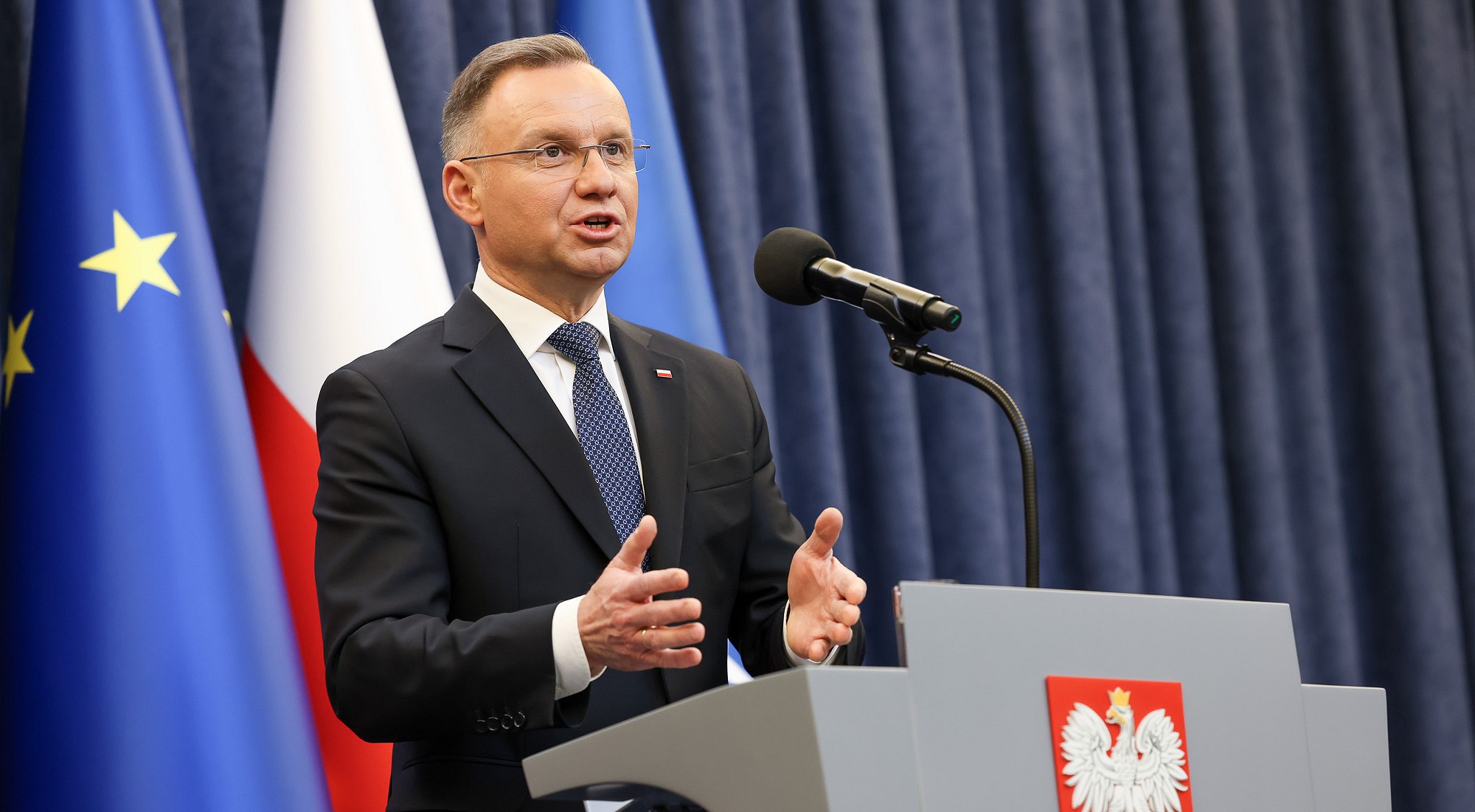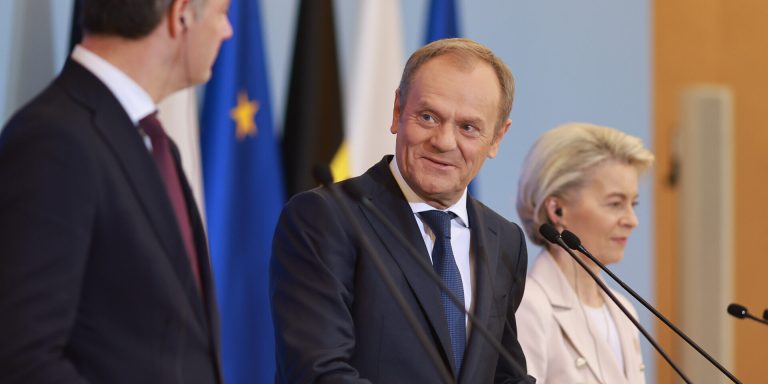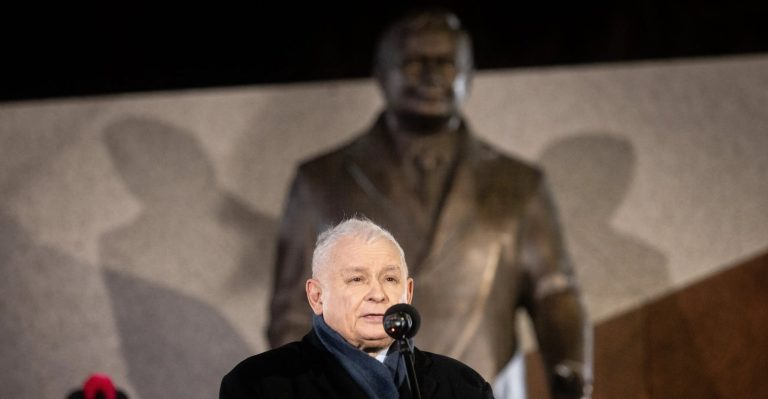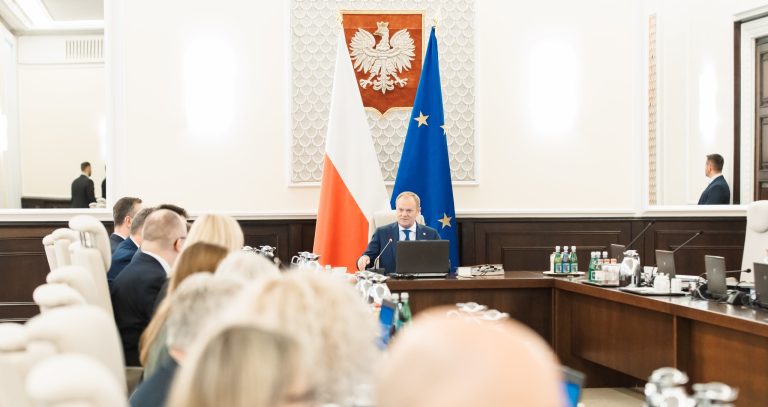President refers Polish government’s budget to constitutional court due to “doubts” over legality

President Andrzej Duda has announced that he is sending the government’s budget for 2024 to the Constitutional Tribunal (TK) for assessment due to his “doubts” as to whether it was adopted properly due to the exclusion from parliament of two opposition MPs recently jailed for abuse of power.
While Duda also signed the budget – something he could have refused to do while awaiting a TK ruling – his decision nevertheless adds to the political and legal chaos Poland has witnessed since a new government came to power last month. It has regularly clashed with Duda, an ally of the former ruling Law and Justice (PiS) party.
Yesterday, Prime Minister Donald Tusk warned that, if the budget was not approved, the ruling coalition may seek to call new elections. But this evening he noted that, because the president has signed the budget as well as sending it for further assessment, it can go into force in the meantime.
Budżet podpisany i o to chodziło. Reszta bez znaczenia. Pieniądze trafią do ludzi, nic tego nie zatrzyma.
— Donald Tusk (@donaldtusk) January 31, 2024
Earlier this month, the ruling majority in both chambers of parliament – the Sejm and Senate – voted in favour of accepting the government’s budget for 2024.
It then passed to the president for his approval. Unlike with other legislation, the president is not allowed to veto the main budget bill. However, he can refer it to the TK if he has doubts about the constitutionality of the entire bill or any of its provisions.
That is what Duda has done, with his office announcing this afternoon that the decision was made “due to doubts related to the correctness of the procedure for adopting the [budget] bills, i.e. the inability of MPs Mariusz Kamiński and Maciej Wąsik to participate in the work of the Sejm on these bills”.
Decyzja Prezydenta @AndrzejDuda ws. ustawy budżetowej ⬇️
Z uwagi na wątpliwości związane z prawidłowością procedury uchwalenia ww. ustaw tj. brakiem możliwości udziału w pracach Sejmu nad tymi ustawami przez posłów Mariusza Kamińskiego i Macieja Wąsika, Prezydent zdecydował o… pic.twitter.com/uusjiVvwxM
— Kancelaria Prezydenta (@prezydentpl) January 31, 2024
Kamiński and Wąsik are PiS politicians and former government ministers who last month received binding convictions and two-year prison sentences for abuse of power. They were jailed this month but, two weeks later, were pardoned by Duda.
Kamiński and Wąsik were also stripped of their mandates as members of the Sejm, the lower house of parliament, as happens when MPs are sentenced to prison. However, they, PiS and Duda argue that that should never have happened because the president had previously pardoned them in 2015 before the final ruling.
The legitimacy of the 2015 pardons – and therefore of Kamiński and Wąsik’s status as MPs – is, however, under legal dispute. One chamber of the Supreme Court has ruled that the 2015 pardons were issued illegitimately.
But another chamber of the Supreme Court and the TK have effectively ruled that the 2015 pardons are legitimate. Both that chamber and the TK are seen as being under the influence of PiS and their legitimacy has also been rejected by Polish and European court rulings.
President Andrzej Duda has announced a pardon for two former government ministers who were jailed for abuse of power.
However, he continues to insist his previous attempt to pardon the pair in 2015 was valid should have been respected https://t.co/iPguek5cjs
— Notes from Poland 🇵🇱 (@notesfrompoland) January 23, 2024
In response to Duda’s decision today, Tusk tweeted that “the budget is signed and that’s all that matters. The rest is meaningless. The money will go to the people, nothing can stop it”.
Yesterday, amid rumours that Duda would not sign the budget, Tusk had warned that if the president “tried in any way to block the payment of people’s salaries, we together with our coalition partners may decide to cut short the parliamentary term…which would lead to early elections”.
Today, after Duda had announced his decision, the head of Tusk’s chancellery, Jan Grabiec, ridiculed the idea of sending the budget to the TK “because criminal MPs convicted by a court and imprisoned could not take part in the vote. Does President Duda believe [parliamentary] voting buttons should be installed in cells?”
However, in its statement today, Duda’s office warned that the president will take “similar action each time MPs are prevented from exercising their mandate”. That suggests he could refer all legislation passed by parliament without the participation of Kamiński and Wąsik to the TK.
Prezydent skierował budżet do Trybunału Konstytucyjnego bo posłowie-przestępcy skazani prawomocnie przez sąd i osadzeni w więzieniu nie mogli wziąć udziału w głosowaniu? Prezydent Duda uważa, że przyciski do głosowania powinny być instalowane w celach? Naprawdę?
— Jan Grabiec (@JanGrabiec) January 31, 2024
Notes from Poland is run by a small editorial team and published by an independent, non-profit foundation that is funded through donations from our readers. We cannot do what we do without your support.
Main image credit: Marek Borawski/KPRP

Daniel Tilles is editor-in-chief of Notes from Poland. He has written on Polish affairs for a wide range of publications, including Foreign Policy, POLITICO Europe, EUobserver and Dziennik Gazeta Prawna.






